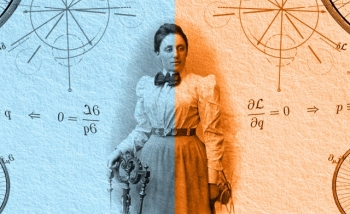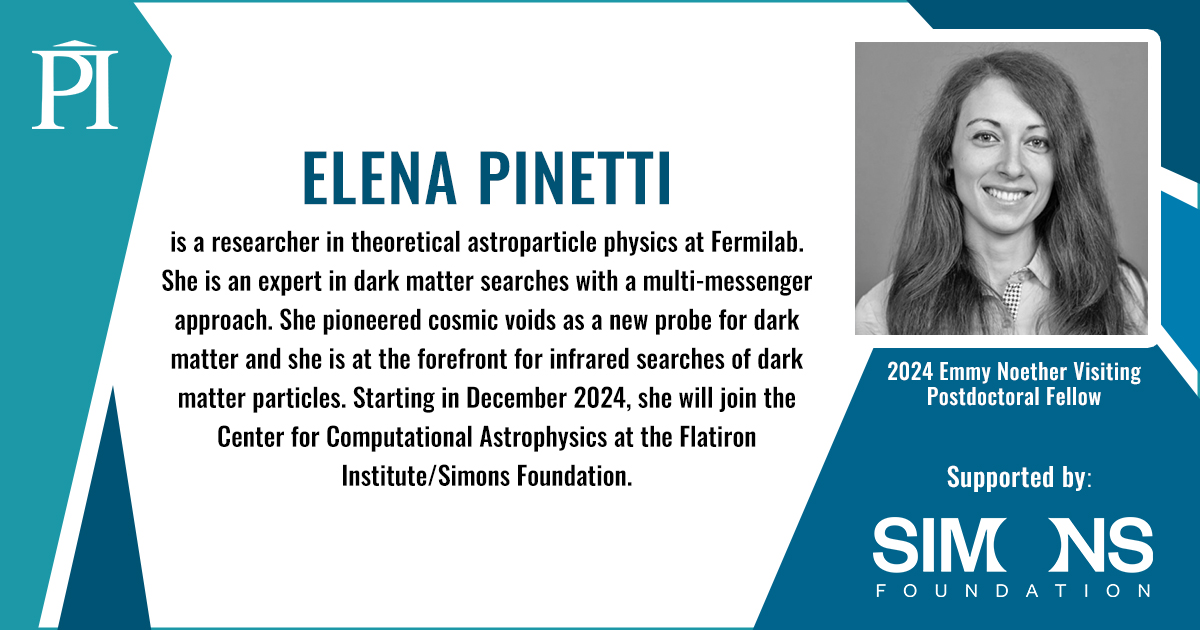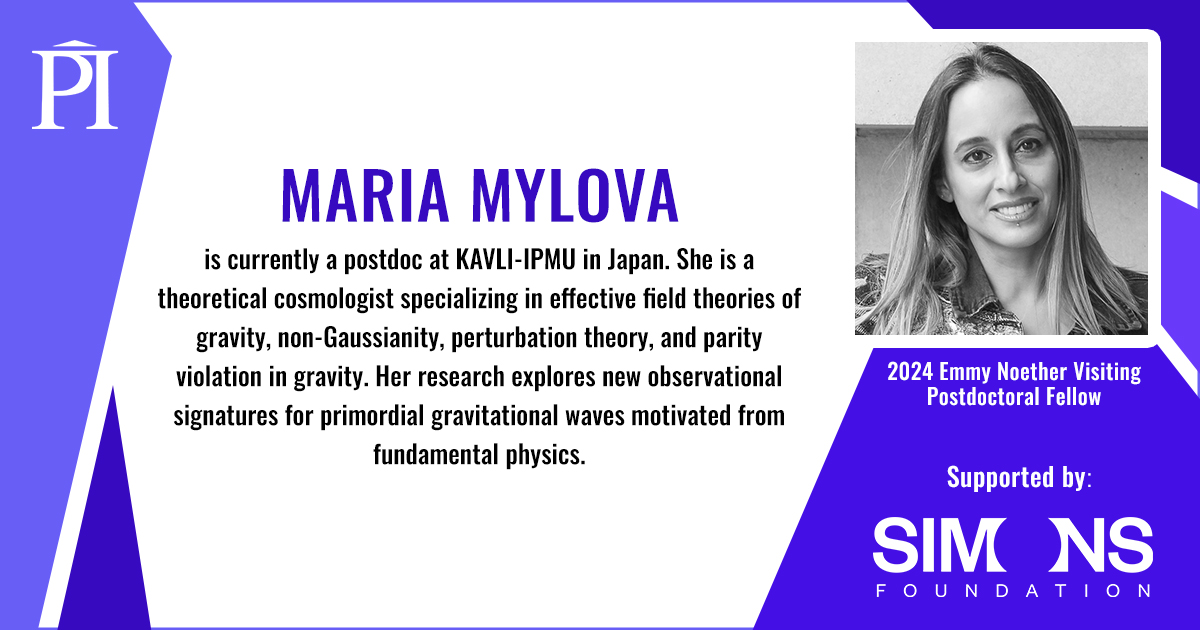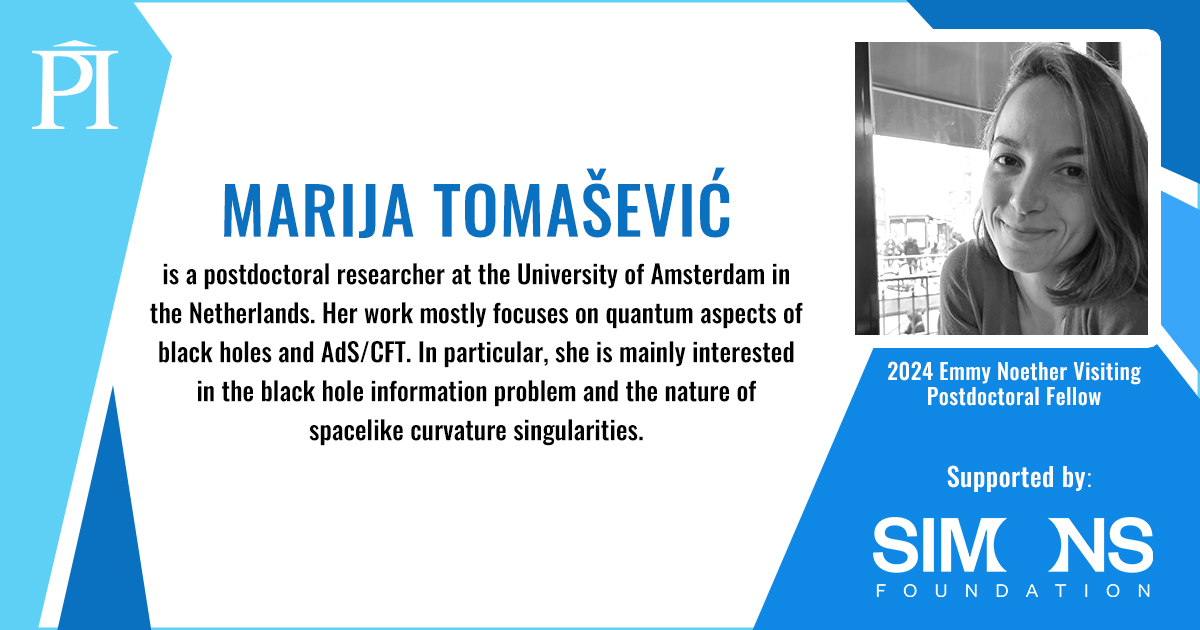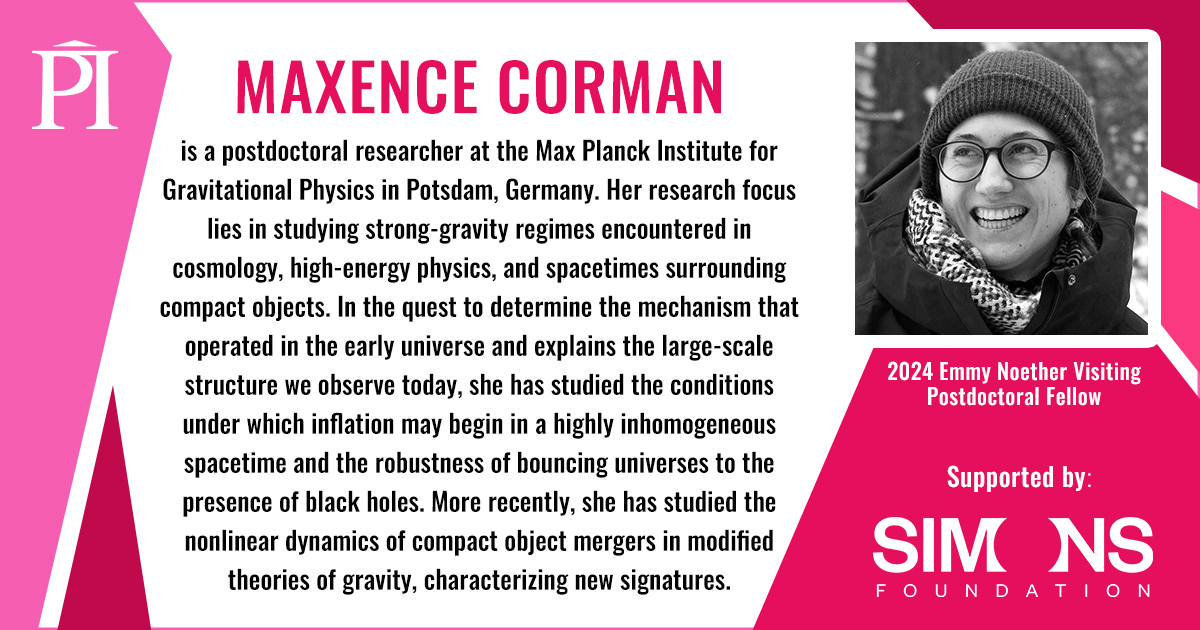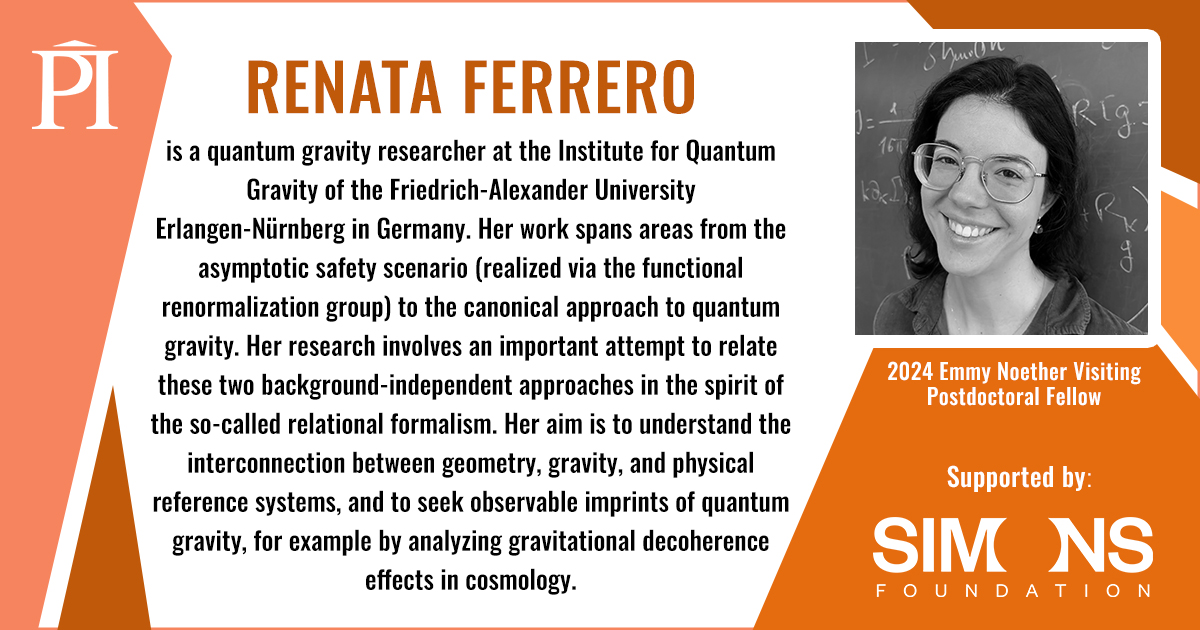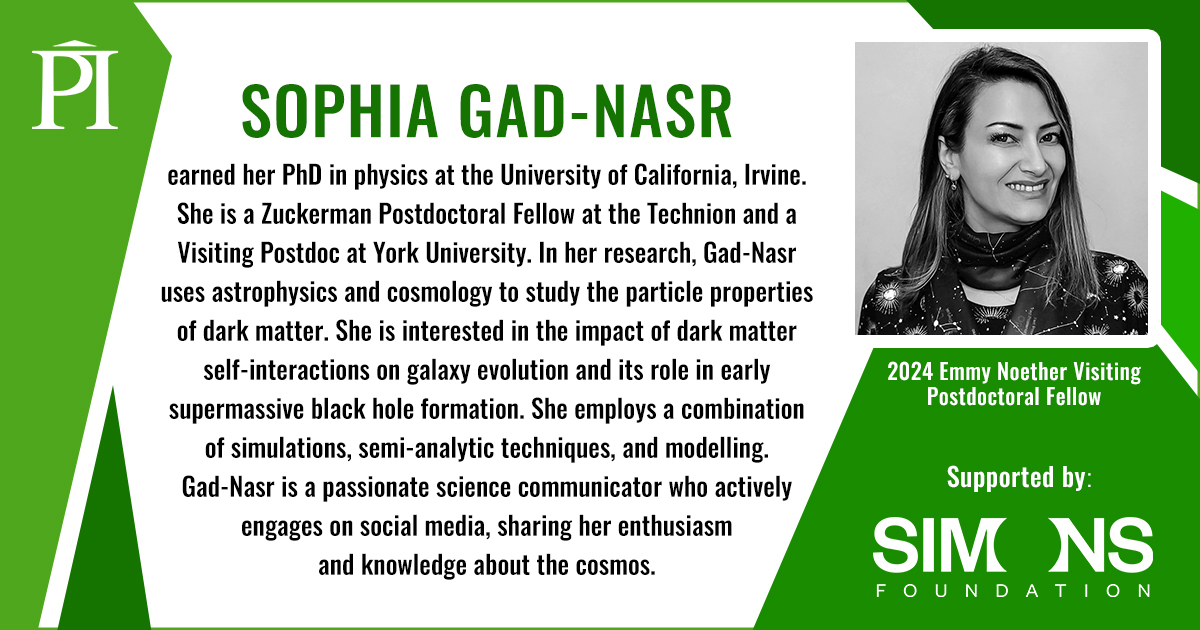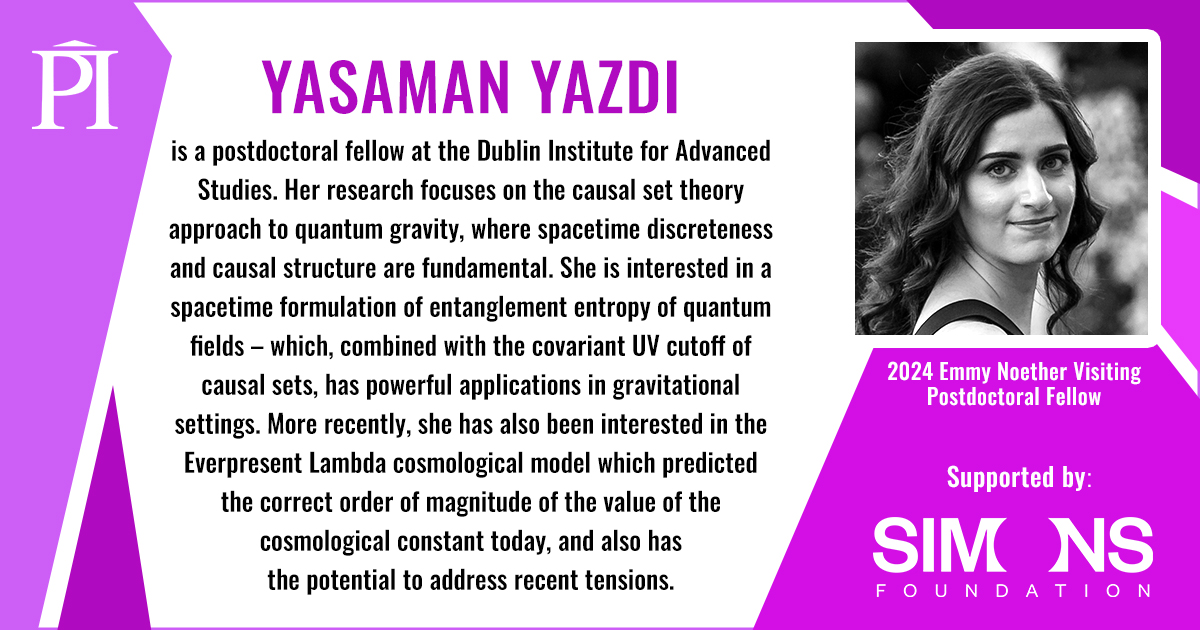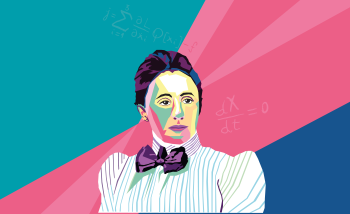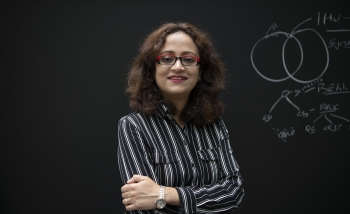Perimeter Institute is set to host seven new Emmy Noether Visiting Postdoctoral Fellows this year, coming from renowned institutions all over the world. Their research spans the field of physics from quantum gravity to cosmology, and sheds light on topics from dark matter to black holes and the nature of spacetime.
Supported by the Simons Foundation, and named for a luminary of modern physics, the Emmy Noether Fellowship program is entering its second decade this year with a (big) bang.
The program offers support to early- and mid-career women in physics, giving them a chance to set aside their usual teaching and administrative duties to focus on their scientific research. It was originally created to support researchers at the faculty level – and the 2024 Emmy Noether Fellows in the faculty stream will be announced later this year – but the program was expanded last year to make postdoctoral researchers eligible for the first time.
The latest batch of exceptional postdoctoral scientists will be visiting Perimeter throughout 2024, immersed in their research and in the Institute’s unique collaborative environment.
The 2024 Emmy Noether Visiting Postdoctoral Fellows are:
The Simons Emmy Noether Fellowship program at Perimeter Institute is supported by the Simons Foundation.
À propos de l’IP
L'Institut Périmètre est le plus grand centre de recherche en physique théorique au monde. Fondé en 1999, cet institut indépendant vise à favoriser les percées dans la compréhension fondamentale de notre univers, des plus infimes particules au cosmos tout entier. Les recherches effectuées à l’Institut Périmètre reposent sur l'idée que la science fondamentale fait progresser le savoir humain et catalyse l'innovation, et que la physique théorique d'aujourd'hui est la technologie de demain. Situé dans la région de Waterloo, cet établissement sans but lucratif met de l'avant un partenariat public-privé unique en son genre avec entre autres les gouvernements de l'Ontario et du Canada. Il facilite la recherche de pointe, forme la prochaine génération de pionniers de la science et communique le pouvoir de la physique grâce à des programmes primés d'éducation et de vulgarisation.
Ceci pourrait vous intéresser
